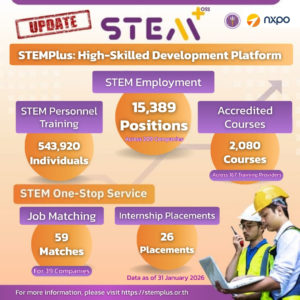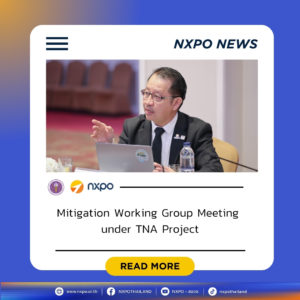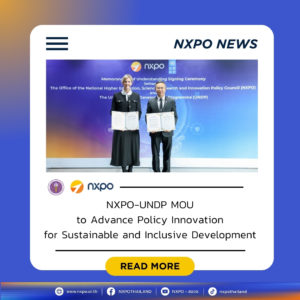On 11 November 2025, the Thailand SynBio Consortium hosted “SynBio Forum 2025” — an annual flagship event that fostered collaboration among policymakers, research institutes, the private sector, and youth. The forum aimed to position synthetic biology as a key technology for Thai future, driving economic growth, social progress, and national sustainability. The event also featured the “Thai SynBio Challenge 2025”, a competition to identify the next generation of youths who hope to turn science into world-class solutions.
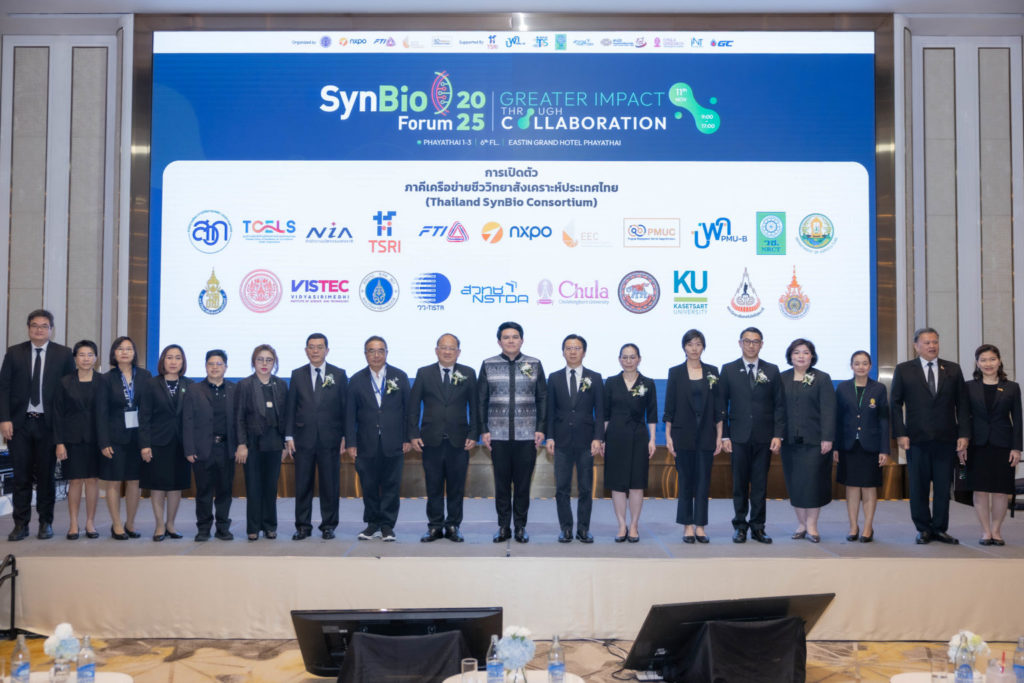
Held in conjunction with the UK-ASEAN Engineering Biology Symposium, SynBio Forum 2025 reflected its theme “Greater Impact through Collaboration,” emphasizing the importance of international partnerships in achieving tangible outcomes.
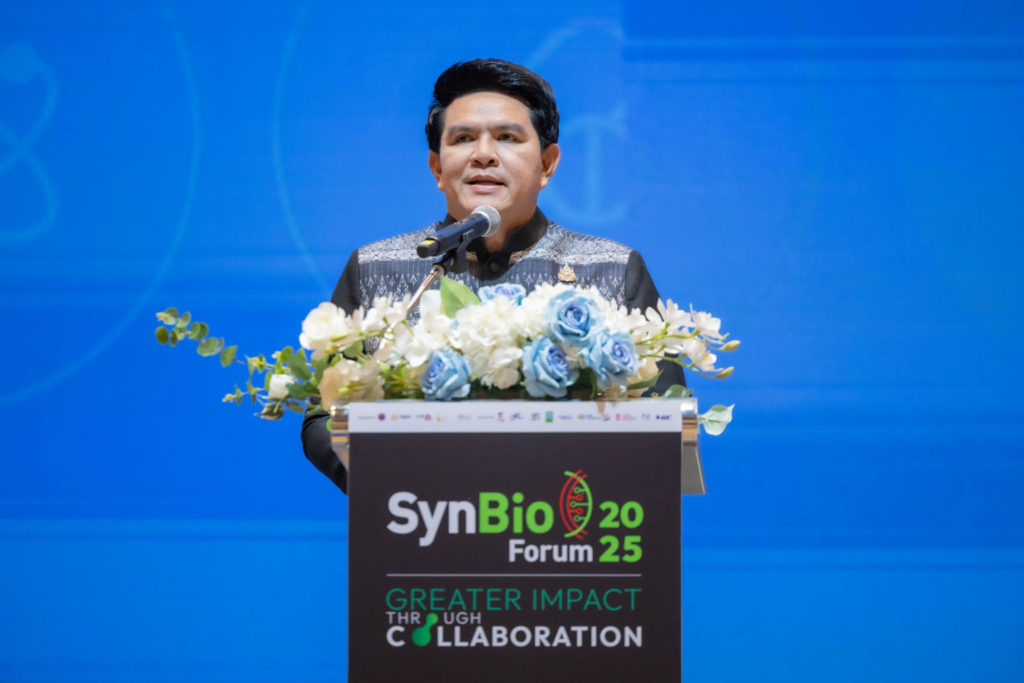
A highlight of the event was the official announcement of the Thailand SynBio Consortium Partnership Agreement, presided over by Mr. Surasak Phancharoenworakul, Minister of Higher Education, Science, Research and Innovation (MHESI) and Mr. Kriengkrai Thiennukul, Chairman of the Federation of Thai Industries (FTI). The consortium serves as a mechanism linking universities, research institutes, government, and the private sector under the vision: “Synthetic biology as the potent technology that can create new economic opportunities and drives Thailand toward sustainable development through the long-standing Bio-Circular-Green (BCG) Economy model.”
In his congratulatory remarks, Minister Surasak underscored three key MHESI policies aligned with Thailand’s SynBio development: promoting an innovation-driven economy, cultivating high-quality human resources, and advancing green growth.
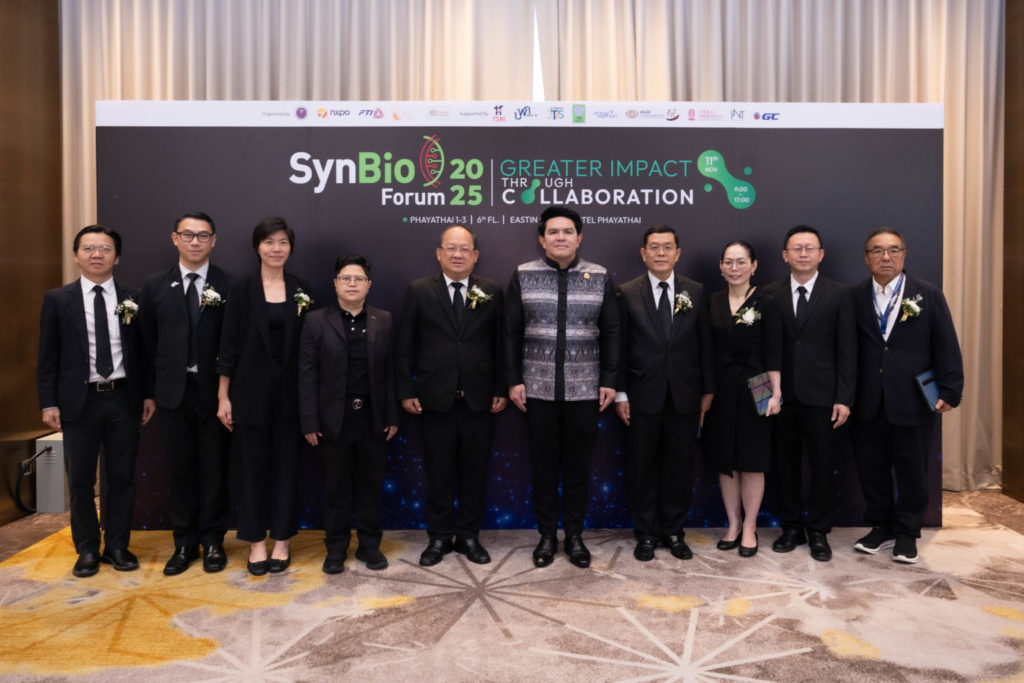
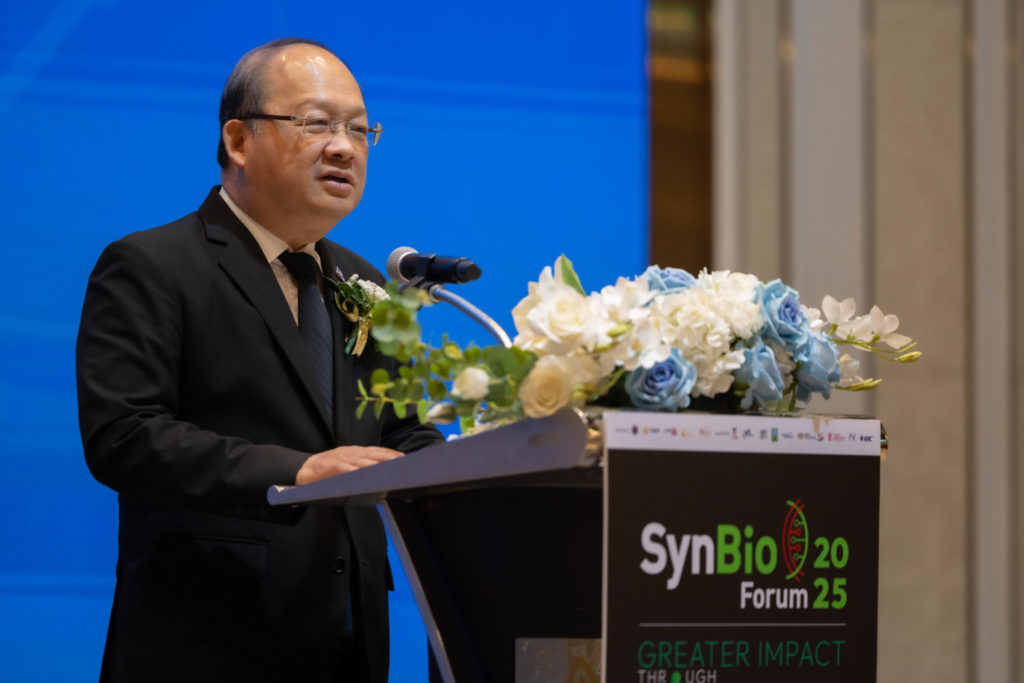
Mr. Kriengkrai Thiennukul, Chairman of the Federation of Thai Industries (FTI), described synthetic biology as a “new frontier” of industrial innovation, positioning biology as a central driver of the modern economy. He emphasized that the Thailand SynBio Consortium represents the power of a “One Thailand Team”, uniting stakeholders to drive bio-innovation and transform cutting-edge research into industrial applications.
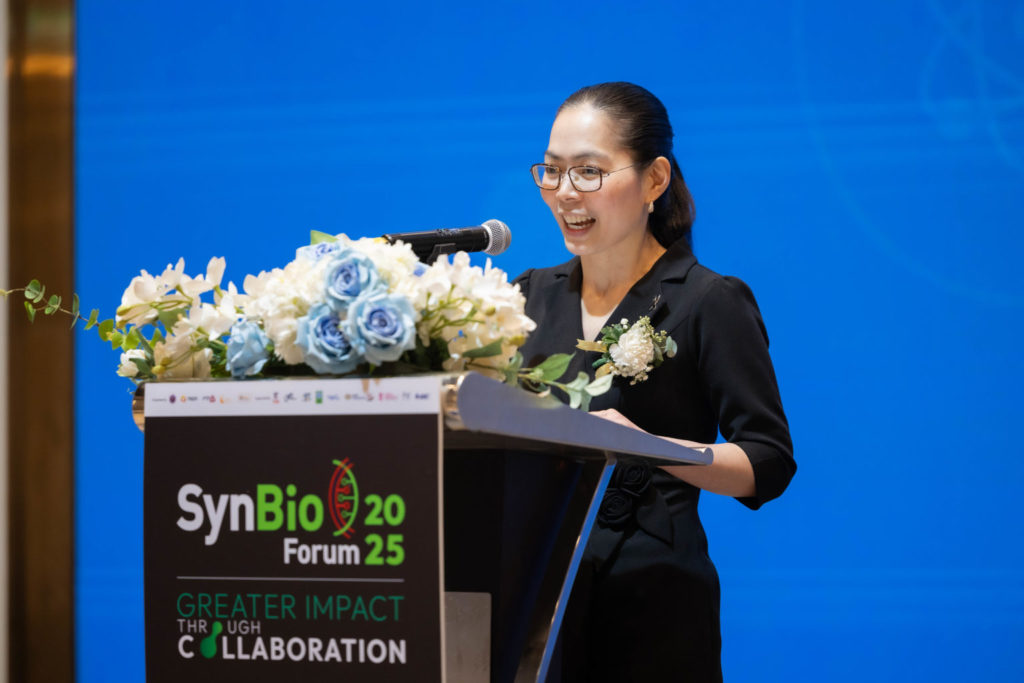
Dr. Siriporn Pittayasophon, Vice President of NXPO, highlighted NXPO’s central role in connecting stakeholders to position Thailand as a regional hub for synthetic biology. She also noted NXPO’s collaboration with UNESCO to develop international guidelines on engineering biology education.
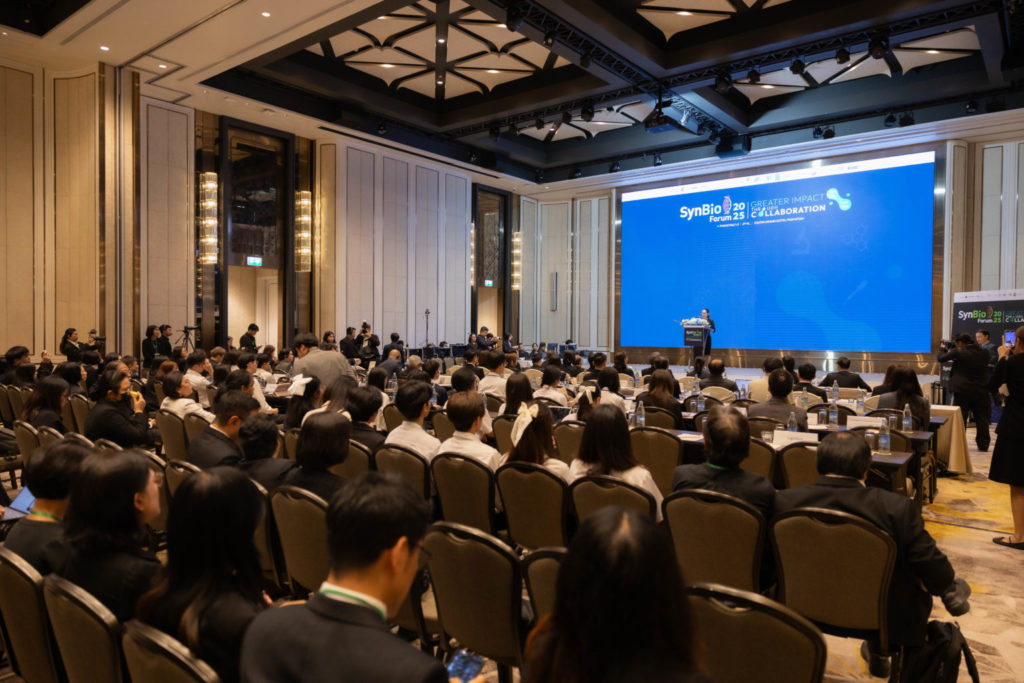
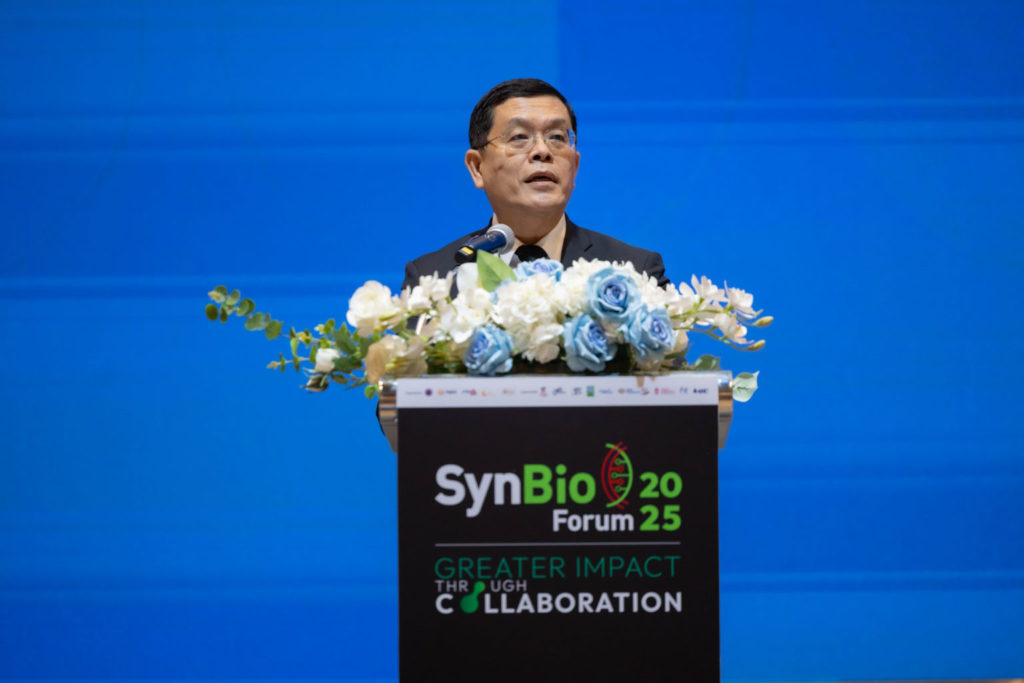
Mr. Kittiphong Limsuwannarot, FTI Board Member, shared updates on consortium initiatives, including genome-editing research in Thai cassava — a collaboration among domestic and international researchers, government agencies, and industry. This project serves as a model for developing other crops tailored to industrial needs.
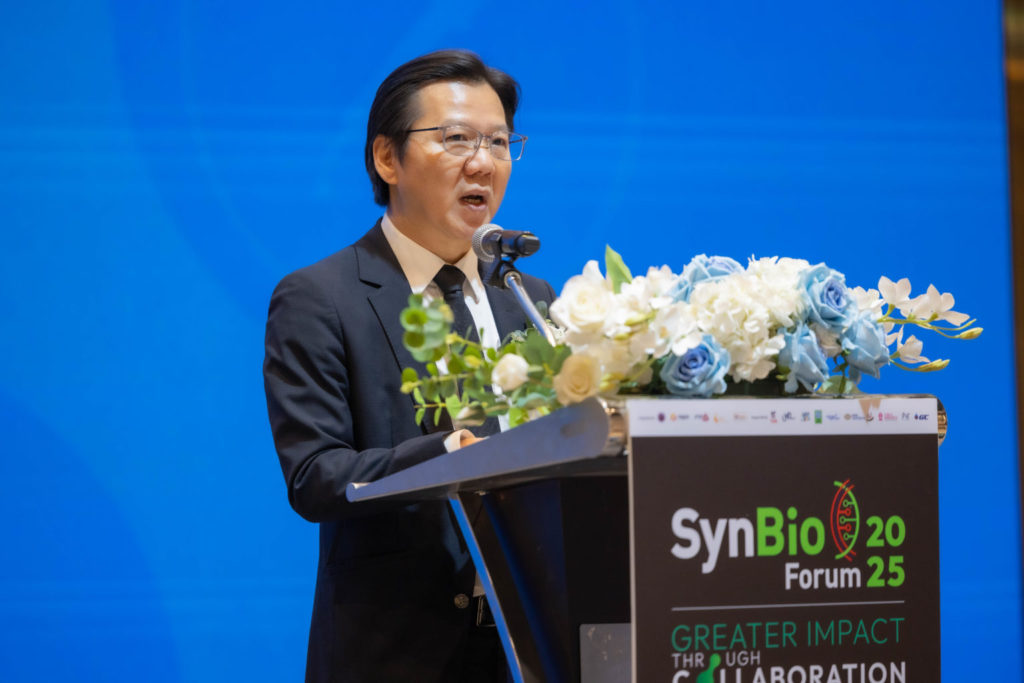
During the opening ceremony, Assist. Prof. Dr. Poolsak Koseeyaporn, Vice President of Thailand Science Research and Innovation (TSRI), discussed funding support from the Science, Research and Innovation Promotion Fund for consortium activities. Assist. Prof. Dr. Ganda Boonsothonsatit, Director of the Program Management Unit for Competitiveness (PMUC), stressed the need for sustained investment in synthetic biology to advance the BCG Economy. Whereas Dr. Jitti Mungkalasiri, Deputy Director of the Program Management Unit for Human Resources & Institutional Development, Research and Innovation (PMU-B), reaffirmed PMU-B’s commitment to supporting frontier research, workforce development, and infrastructure for Thailand’s SynBio ecosystem.
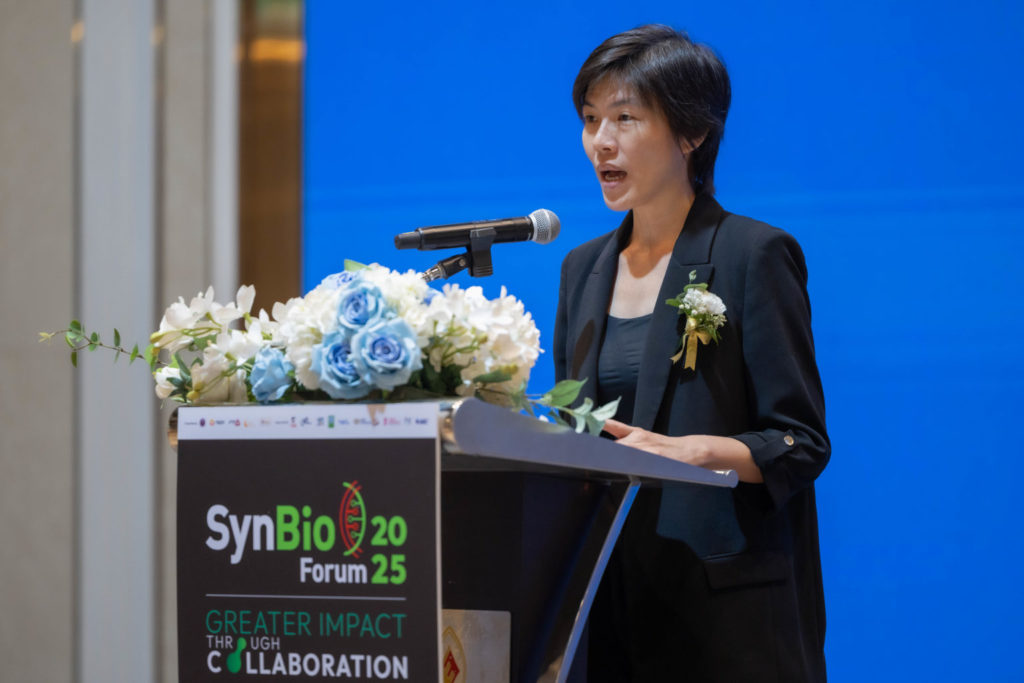
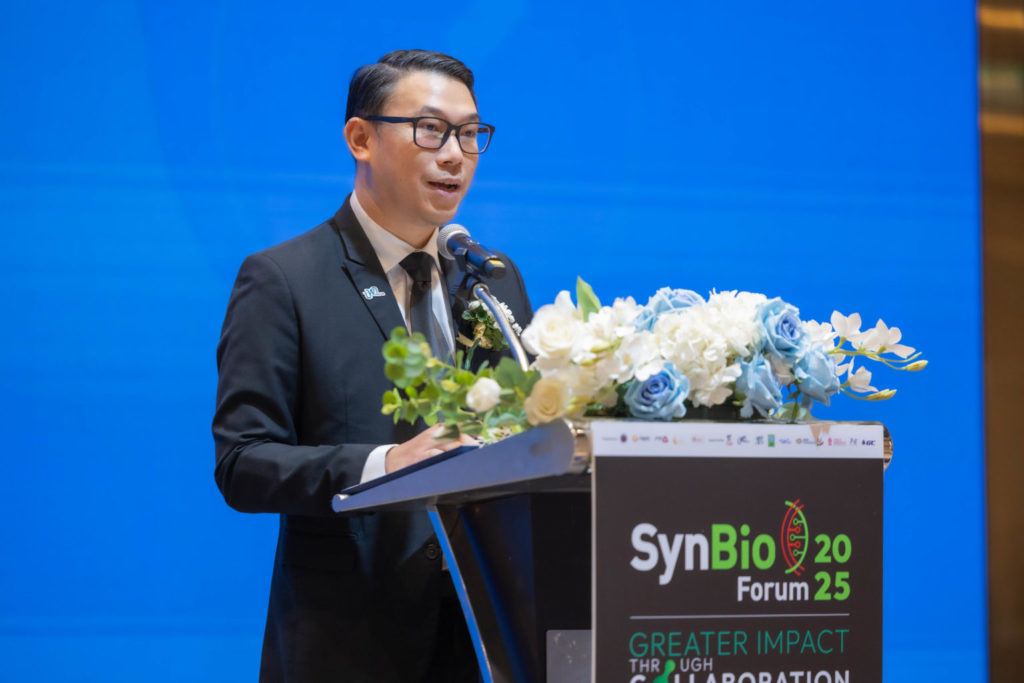
The forum featured panels and networking activities connecting Thai research, policy, and industry with global partners. A special session co-hosted with the Eastern Economic Corridor Office (EECO) showcased cutting-edge SynBio businesses and technologies from around the world, highlighting innovation-driven enterprises as catalysts for Thailand’s bioeconomy and fostering research-to-industry collaboration between Thai investors and global partners.
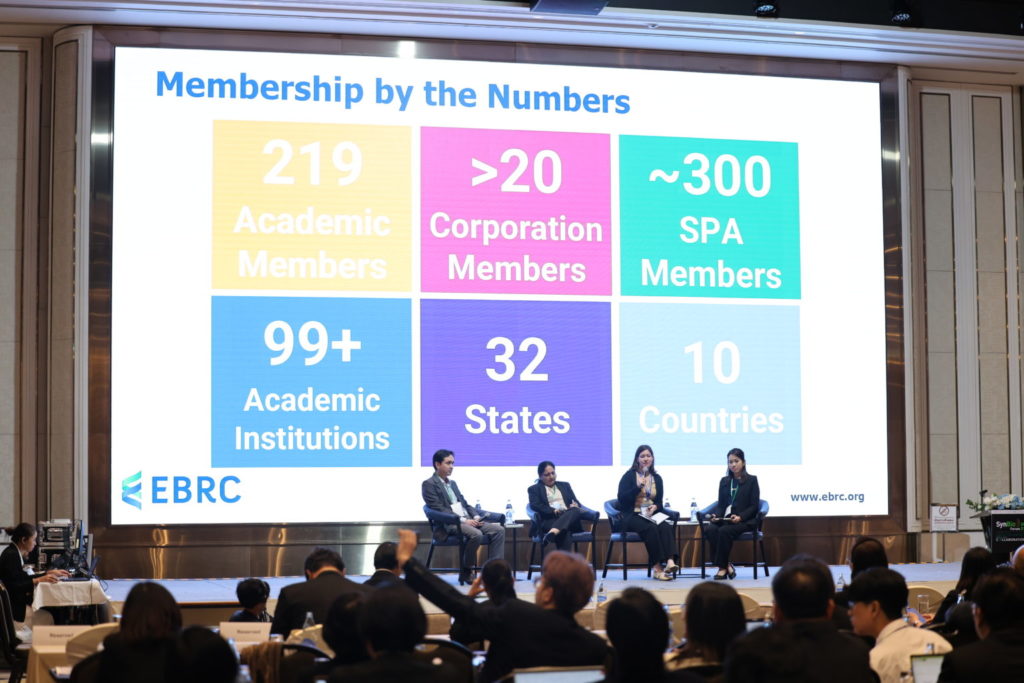
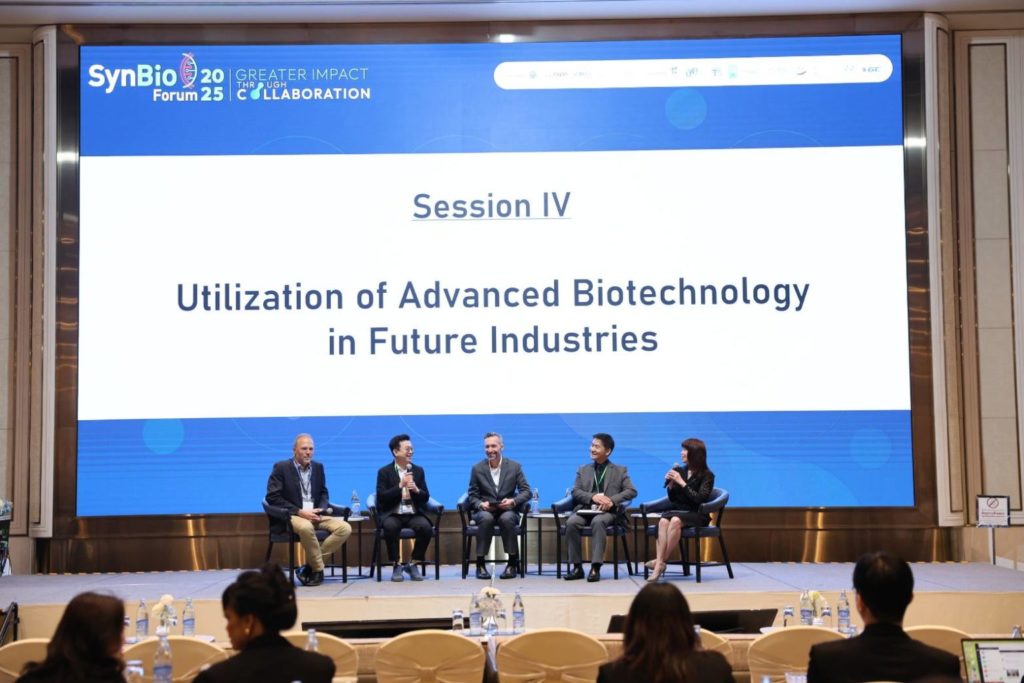
Another highlight was the Thai SynBio Challenge 2025: Designing Proteins of Tomorrow, which invited students and young researchers nationwide to propose synthetic biology solutions in the form of protein design which address industrial and sustainability needs. Twenty-nine teams have submitted proposals, with 9 finalists from leading institutions including Kasetsart University, Mahidol University, Kamnoetvidya Science Academy (KVIS), University of Phayao, The Newton Sixth Form School, Chulalongkorn University, Thammasat University, Suankularb Wittayalai Rangsit School, and King Mongkut’s University of Technology Thonburi (KMUTT) presented their ideas during the event. The top three teams were awarded a study trip to the Shenzhen Institutes of Advanced Technology (SIAT).
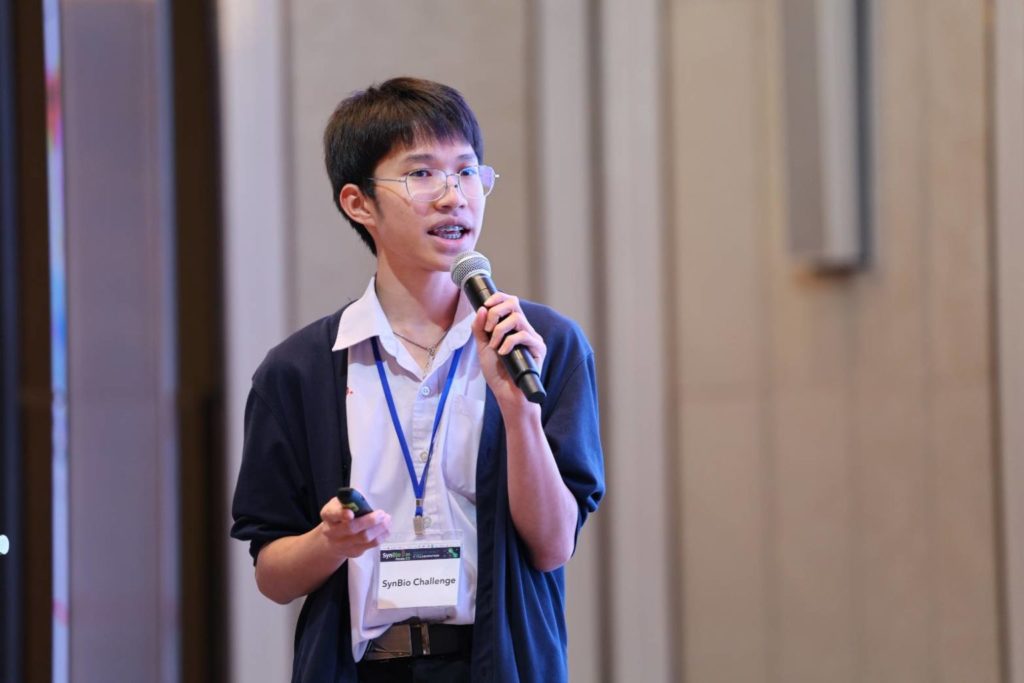
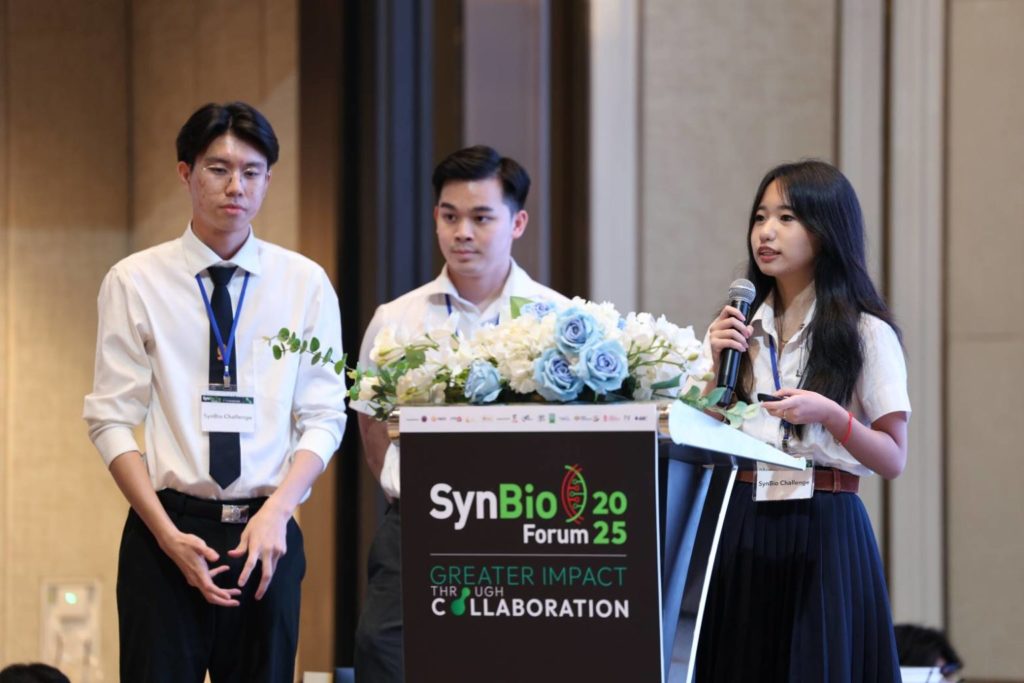
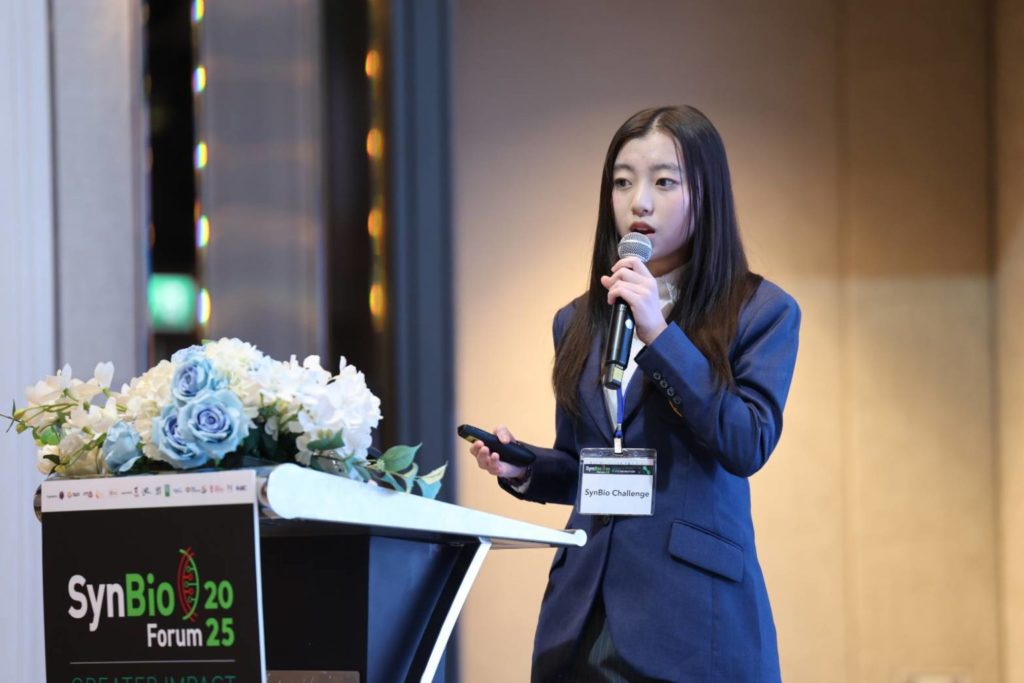
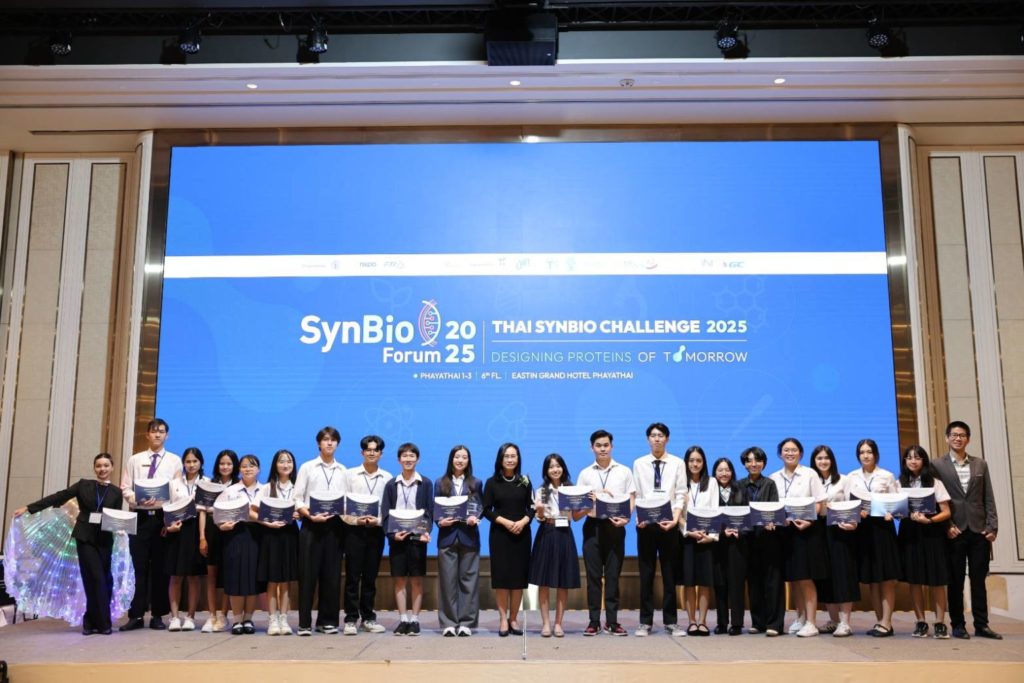
By bringing together government, academia, and industry with international partners, SynBio Forum 2025 underscored Thailand’s determination to become a regional hub for synthetic biology innovation in ASEAN.


